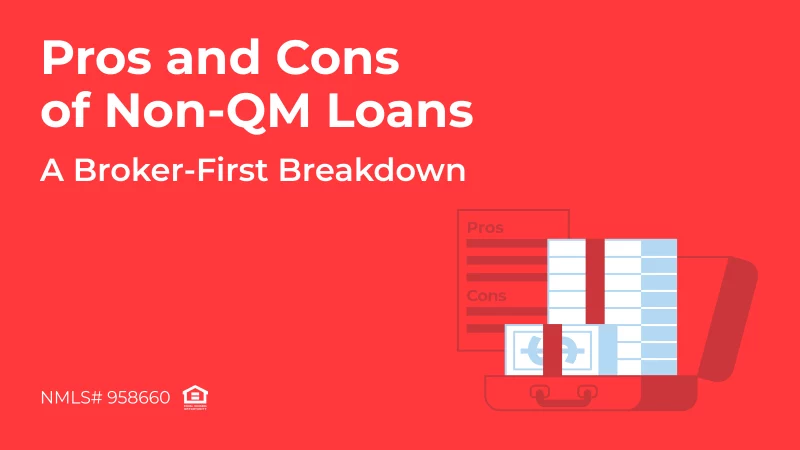Buying a home is one of the most significant financial decisions people make. Securing a mortgage with favorable terms is essential to long-term financial stability. A key factor in this process is your credit score. Higher credit scores can open the door to lower interest rates and better loan terms, potentially saving homebuyers thousands of dollars over the life of their loan. However, as of 2024, the cost of obtaining a credit report has increased significantly, adding another layer of importance to maintaining a good credit score.
Credit report fees, which a mortgage lender passes on to borrowers, have risen dramatically in recent years. For example, the cost of a tri-merge report (which includes credit data from Experian, Equifax, and TransUnion) has jumped from around $15 to as much as $75 to $150. Further increases are expected in 2025. This makes it even more critical for homebuyers to improve their credit score early in the homebuying process to avoid multiple pulls that can further drive up costs.
In this guide, we’ll explore why costs for credit pulls are increasing, why credit scores are so crucial for homebuyers, and provide actionable tips for improving credit scores to secure the best possible mortgage terms in today’s market.
Why Are Credit Pulls Getting More Expensive?
The cost of pulling FICO credit scores has been rising over the past few years. This trend is expected to continue in 2025 and beyond. The increase has sparked concerns among mortgage lenders, brokers, and industry professionals. They fear it could drive up the overall cost of obtaining mortgages, ultimately affecting consumers. Several key factors contribute to these rising costs of credit pulls.
1. Dominant Market Position of FICO
Fair Isaac Corporation (FICO), which developed the widely adopted FICO score, holds a near-monopoly in the mortgage credit score market. Over 95% of mortgage-backed securities rely on FICO scores to assess consumer credit risk. This market dominance allows FICO to raise prices with minimal resistance from mortgage lenders and the broader industry. Analysts have pointed out that the company’s pricing power is one of its most significant business strengths, enabling it to increase its fees repeatedly without losing its market share (FICO Pulls Increase).
2. Tier-Based Pricing Models
One of the significant changes driving up costs is the introduction of tier-based pricing for FICO scores. Starting in 2023, FICO implemented a royalty structure where the price per score depended on the volume of scores pulled by the lender. Larger lenders with higher volumes of credit pulls received a lower per-score price, while smaller lenders faced a higher cost. This shift created a disparity, with some mortgage lenders seeing as much as a 400% increase in the price of credit reports (FICO Pulls Increase). As smaller mortgage lenders and brokers typically pull fewer reports, they are more affected by the price hikes, leading to increased costs for their clients.
3. Rising Costs of Tri-Merge Credit Reports
A tri-merge credit report pulls data from the three major credit bureaus—Experian, Equifax, and TransUnion. It provides a FICO score based on this information. The rising cost of these tri-merge reports is partly driven by the fees imposed by these credit bureaus, in addition to the increasing FICO royalties. The cost of a tri-merge report has surged in recent years. Some lenders are now paying between $75 and $150 per report, compared to $50 in 2022 (FICO Pulls Increase).
Get the ADvantage
with our loyalty program
Earn and redeem points for valuable benefits for you and your clients
Unlock Rewards
This sharp increase stems from a combination of higher royalty fees to FICO and additional charges from the credit bureaus themselves. As these costs rise, they are passed on to consumers, meaning homebuyers end up paying more to have their credit evaluated during the mortgage application process.
4. New Credit Score Models and Regulatory Changes
The cost of credit reports is also being influenced by the shift toward newer, more complex credit scoring models. Fannie Mae and Freddie Mac, the two largest mortgage financiers in the U.S., are moving away from the classic FICO model to newer versions, such as FICO Score 10 T and VantageScore 4.0. These models are designed to provide a more comprehensive view of a consumer’s financial health by incorporating additional data points, such as trended credit data. While these changes are intended to offer more inclusive scoring, the transition to these newer models is expected to come with additional costs(FICO Pulls Increase).
Additionally, there has been increasing scrutiny from regulators like the Consumer Financial Protection Bureau (CFPB), which has raised concerns about the lack of transparency and rising costs in the credit reporting industry. However, despite potential regulatory pressure, FICO’s strong position in the market allows it to continue raising prices while still being the dominant provider of credit scores for mortgage lending.
5. Inflation and General Cost Increases
Like many other sectors, the credit reporting industry has faced rising operational costs due to inflation. Higher labor costs, technology investments, and increased regulatory compliance expenses are passed on to consumers through price increases. Credit bureaus and FICO themselves have cited these cost pressures as reasons for raising their prices.
Why Credit Scores Are Important for Homebuyers
A credit score is more than just a number. It’s a reflection of a borrower’s financial habits and a key metric that lenders use to assess the risk of lending money. For prospective homebuyers, understanding the importance of their credit score is essential. It can determine not just if they qualify for a mortgage but also the terms they receive. Below are several reasons why credit scores are vital in the homebuying process.
1. Impact on Mortgage Interest Rates
One of the most immediate ways a credit score affects homebuyers is through mortgage interest rates. Lenders set interest rates based on how risky they perceive the borrower to be. A higher credit score signals to lenders that the borrower is financially responsible and less likely to default on the loan. Consequently, those with higher scores are typically offered lower interest rates.
Enhanced Broker Portal
that makes your job easier
- All operations at your fingertips
- Easy-to-use intuitive interface
- Integrated AI technology
Show Me How
A small difference in interest rates can have a significant long-term impact on the cost of a mortgage. For example, a 0.5% reduction in the interest rate can save thousands of dollars over the life of a 30-year loan. A higher credit score makes it possible for homebuyers to secure these lower rates. It reduces their monthly mortgage payments and overall interest paid.
2. Qualification for Different Loan Programs
Certain loan programs, particularly government-backed loans like FHA or VA loans, may have minimum credit score requirements. While these programs are often more flexible than conventional loans, having a higher credit score can still make a difference in qualifying for better terms or lower down payments. For example, FHA loans typically require a minimum score of 580. However, borrowers with scores above 620 may receive more favorable terms.
Similarly, conventional loans, which are not backed by the government, usually require higher credit scores—often 620 or above for approval. Borrowers with scores below this threshold may struggle to qualify for a conventional mortgage and may need to explore other, often more expensive, financing options.
3. Lower Down Payment Requirements
A higher credit score can also help homebuyers reduce their down payment requirements. Many lenders offer better terms, including lower down payments, to borrowers with strong credit. For instance, some conventional loan programs allow borrowers with excellent credit to put down as little as 3% of the home’s purchase price. At the same time, those with lower scores may be required to put down more.
In addition, borrowers with higher credit scores might be able to avoid the added cost of private mortgage insurance (PMI). PMI is often required when the borrower puts down less than 20%, but some lenders waive this requirement for borrowers with strong credit histories, saving them hundreds of dollars per month.
4. Private Mortgage Insurance (PMI) Costs
For borrowers who do not meet the 20% down payment threshold, private mortgage insurance (PMI) becomes a requirement. However, the cost of PMI is largely influenced by the borrower’s credit score. Those with lower credit scores may pay significantly more for PMI compared to those with higher scores.
PMI can add hundreds of dollars to a borrower’s monthly payment. It may be possible to cancel PMI once enough equity is built in the home. Although, paying higher rates early on can strain a buyer’s budget. By improving their credit score, homebuyers can minimize or even avoid these additional costs.
5. Flexibility in Loan Terms
A strong credit score provides homebuyers with greater flexibility when it comes to loan terms. Borrowers with higher scores have access to a wider range of loan products. They can often choose between various repayment terms, such as 15-year or 30-year mortgages. Additionally, they may qualify for special mortgage products. These include adjustable-rate mortgages (ARMs) with more favorable initial rates or interest-only loans that can help lower payments during the first few years of homeownership.
Borrowers with lower credit scores, on the other hand, have often limited options. They may have to take on higher-rate, fixed-term loans or be unable to qualify for more advantageous loan products altogether. Having a strong credit score ensures borrowers have the flexibility to choose the mortgage that best fits their financial situation and long-term goals.
6. Overall Loan Approval
Perhaps the most critical role of a credit score is determining whether a borrower gets an approval for a mortgage at all. Lenders use credit scores as one of the primary screening tools to decide if a borrower is eligible for a loan. Those with low credit scores may find themselves denied or having to provide additional documentation, larger down payments, or higher reserves to demonstrate their creditworthiness.
With rising costs associated with credit report pulls, having a strong credit score becomes even more essential. As it becomes more expensive for lenders to pull credit reports, borrowers with lower scores may find themselves subject to multiple pulls during the application process, increasing their costs. A solid credit score can help streamline the approval process. It reduces the need for repeated checks.
7. Confidence for Lenders
Lenders use a borrower’s credit score as a measure of confidence. A higher score suggests that the borrower has a history of managing debt responsibly, paying bills on time, and keeping balances low on credit accounts. This provides lenders with peace of mind that the borrower is likely to meet their mortgage obligations.
Borrowers with higher credit scores are seen as lower risk. It can result in faster approval times and more favorable loan terms. In contrast, a lower score may lead to more scrutiny during the underwriting process. Lenders will require additional verification or imposing stricter terms to offset the perceived risk.
Tips for Homebuyers to Improve Their Credit Scores
Improving credit scores takes time, but consistent, positive steps can make a big difference. Here are the top tips new homebuyers should consider.
Check Your Credit Report for Errors
- Homebuyers should pull their credit reports from all three major bureaus (Experian, Equifax, and TransUnion) and review them for inaccuracies. Errors like outdated information or incorrect accounts can negatively impact a score.
- Dispute any errors with the credit bureaus to have them corrected promptly.
Pay Bills on Time
- Payment history accounts for 35% of a FICO score, making it the most important factor. Even a single missed payment can drop a score significantly.
- Set up automatic payments or calendar reminders to ensure the borrowers pays their bills on time.
Reduce Outstanding Debt
- The amount owed on credit accounts contributes to 30% of a credit score. Keeping credit card balances low relative to the credit limit (below 30%) can boost your score.
- Pay down high-interest debts first, and consider consolidating debts to simplify payments.
Avoid Opening New Credit Accounts
- Opening several new credit accounts in a short period can lower a credit score. Each application results in a “hard pull” on the credit report.
- Mortgage brokers should advise clients to avoid applying for new credit cards, loans, or other credit products before applying for a mortgage.
Keep Old Accounts Open
- The length of credit history is also a key factor in calculating credit scores. Closing old accounts can shorten the credit history and lower the score.
- Instead of closing accounts, keep them open and use them occasionally to maintain a long credit history.
Diversify Credit Types
Having a mix of credit accounts, such as credit cards, auto loans, and installment loans, can help improve a credit score. However, homebuyers should avoid opening new accounts solely to improve credit mix, as this could result in unnecessary debt.
Why Mortgage Brokers Should Educate Buyers About Credit Scores
Educating clients about their credit scores should be a top priority for a mortgage broker. A credit score significantly impacts a borrower’s ability to qualify for a mortgage, the interest rate they will receive, and the overall cost of the loan. By helping buyers understand the importance of maintaining a strong credit score, brokers can empower them to make informed financial decisions that lead to better loan terms and savings.
Choose a top nationwide lender that cares about your growth!
Get Started
Educating buyers also helps them avoid common credit pitfalls, such as opening new credit accounts or accumulating more debt during the homebuying process, which could jeopardize their mortgage approval. By providing this valuable education, brokers build trust, improve client satisfaction, and establish long-term relationships. These efforts not only benefit clients but also enhance the broker’s reputation as a knowledgeable and supportive partner.
Financial literacy is more critical than ever. So, mortgage brokers who prioritize credit education for their clients are positioning themselves for long-term success. By empowering buyers to improve their credit scores, brokers help ensure smoother transactions, better financial outcomes, and a more confident client base.



